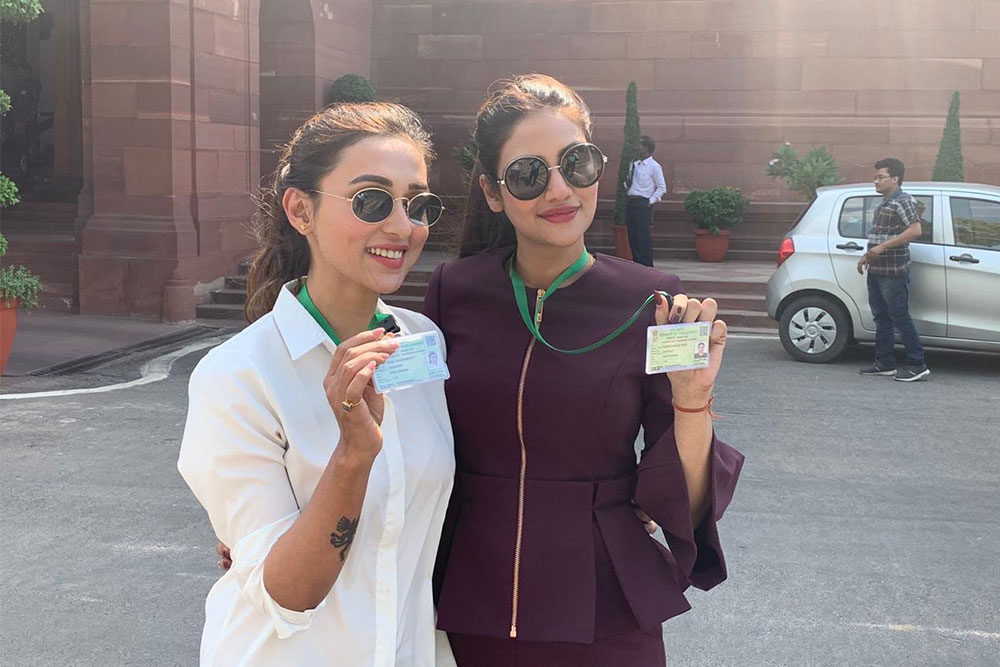A few days ago, Uttarakhand Chief Minister, Tirath Singh, went up on stage and made a comment about a woman’s choice of clothing, triggered by a fellow passenger’s choice of donning ripped jeans and travelling with children. The woman in question runs an NGO.
He said, “If such women go out in the society to meet people and solve their problems, what kind of message are we giving out to society, to our kids? It all starts at home. What we do, our kids follow. A child who is taught the right culture at home, no matter how modern he becomes, will never fail in life.”
This statement invited severe backlash on social media with most criticising his thought process. In fact, several celebrities such as Gul Panag and Navya Naveli Nanda, along with host of other netizens, posted pictures of themselves in ripped jeans as a way to express their displeasure over the remark.
As per latest reports, Singh has apologised for his remark, but reiterated that he is “not against jeans but just ripped jeans”. “The statement was made as a father. The event where I said that was about women and children. I said that since a student is at school for five to six hours and spends most of the time at home, traditions and values can be inculcated better at home,” he clarified.

Representational image
If you are a woman living in India, there is little doubt that you have, if not faced, heard about instances wherein what a girl/woman chooses to wear is reflective of her upbringing and her character. Take another statement for example, this time by Kamal Patel, farmers’ welfare and agriculture department minister in the Madhya Pradesh government. He recently said, “Women and girls are our pride and parents should stop their daughters from wearing ripped jeans for their safety. With the adoption of western clothes, the crime against women has also been increased.”
Rewind to 2019. Actors-turned-politicians Mimi Chakraborty and Nusrat Jahan, fresh off from their win (the two contested elections as Trinamool Congress representatives, and won by substantial margins) opted for western attires on their first visit to the Parliament. Even before they could begin work, they were trolled for what they chose to wear. “You should wear some Indian attire in Parliament. You are going for people not for movie promotions. And keep some respect towards your Bengali society,” a user said.
“Wear sari in Parliament. You look like a tourist there,” another wrote.

Mimi Chakraborty and Nusrat Jahan. Photo credit: Twitter
In 2014, Asha Mirje Maharashtra State Women's Commission member, had sparked nationwide outrage when said that women too were “responsible to an extent” for rape and that their “clothing and behaviour” played a part. The backlash led her to apologise saying it was her “personal opinion.”
Furthermore, in 2013, Samajvadi Party’s Abu Azmi, had mentioned that scantily-clad women attract male attention and rape cases in the country are on the rise owing to “women wearing less clothes”.
It’s 2021, but unfortunately, despite the many developments which give us an impression of ‘progress’, when it comes to women and their clothing in India, we seemed to have made little to none.